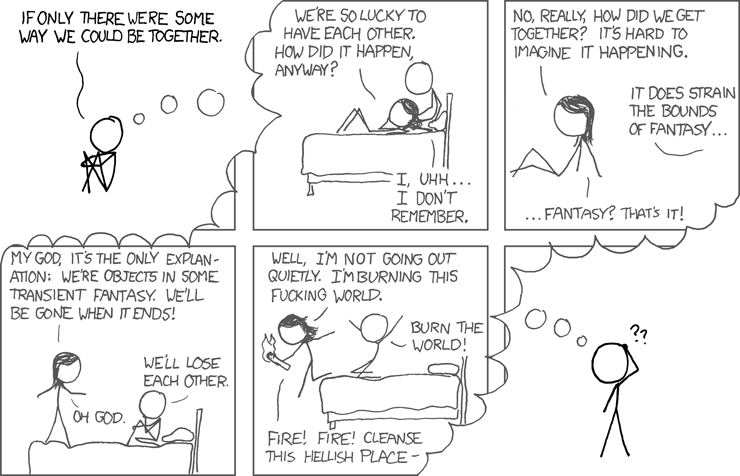One of today's discussion topics was the path thought takes when trying to help others. As written by someone whose name escapes me, people tend to go through steps -
Horror: "My God, I didn't realize it was so bad."
Determination: "Let's fix it."
Despair: "We can't fix it. Let's forget it."
Solidarity: "They" becomes "we", "those people" becomes "our people".
- and people in affluent countries often get stuck on #3.
But the thing that interests me, and continues to interest me, is how this can work on any level. Take a marriage that's on the rocks, for instance. At some point, one may realize things are in trouble. In many people, this leads to a frenzied determination to fix things, sometimes even if the realization comes to an outsider, like a friend or one of the kids. But when it doesn't seem to work, the temptation comes in to quit and ignore the situation. If one gets past the despair stage, one tends to find oneself more invested in the issue than one was originally.
The teacher asked us what resources we have to deal with despair in our ordinary lives. People listed friends and family, drugs and psychologists. Curiously, these fit fairly well with the perspectives we've been studying - friends and family being the religious side, drugs a bit like the absurd (Camus), and psychology like enlightenment rationality.
( And then I go off talking about me )